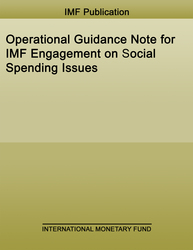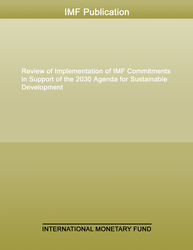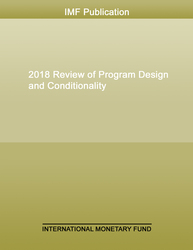
Operational Guidance Note for IMF Engagement on Social Spending Issues
This note provides operational guidance to staff on when and how to engage on social spending issues, in the context of surveillance, IMF-supported programs, and capacity development.
READ MORE...
Volume/Issue:
Volume 2024
Issue 022
Publication date: April 2024
ISBN: 9798400272271
$5.00
Add to Cart by clicking price of the language and format you'd like to purchase
Available Languages and Formats
| English |
Prices in red indicate formats that are not yet available but are forthcoming.
Topics covered in this book
This title contains information about the following subjects.
Click on a subject if you would like to see other titles with the same subjects.
Money and Monetary Policy , Public Finance , Political Economy , social spending , spending adequacy , spending efficiency , fiscal sustainability , social spending conditionality , social spending floor , social safety nets , education , health , pensions , spending issue , transparency policy , IMF capacity development , Health care spending , Education spending , West Africa , Sub-Saharan Africa
Summary
This note provides general guidance on the operationalization of the strategy for IMF engagement on social spending. Social spending plays a critical role as a key lever for promoting inclusive growth, addressing inequality, protecting vulnerable groups during structural change and adjustment, smoothing consumption over the lifecycle, and stabilizing demand during economic shocks. Social spending policies have also been playing an important role in tackling the structural challenges associated with demographic shifts, gender inequality, technological advances, and climate change. This note builds on a series of notes on IMF engagement on specific social spending issues since the publication of the 2019 strategy paper and provides operational guidance on when and how to engage on social spending issues, in the context of surveillance, IMF-supported programs, and capacity development.
Copyright © 2010 - 2026
Powered by:
AIDC



